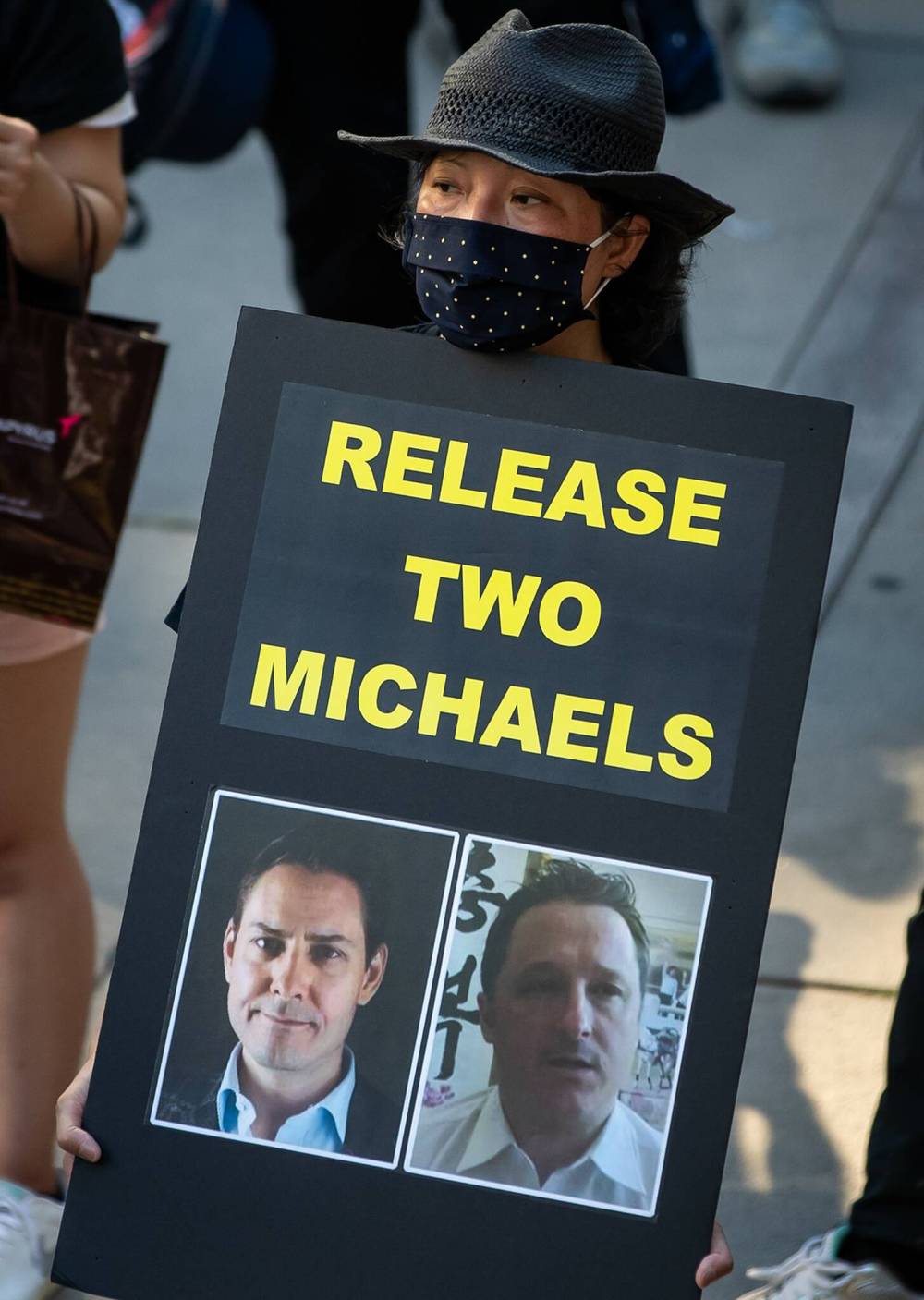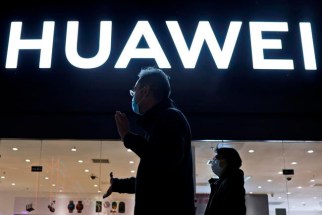Ban Huawei from 5G networks
Read this article for free:
or
Already have an account? Log in here »
To continue reading, please subscribe:
Monthly Digital Subscription
$0 for the first 4 weeks*
- Enjoy unlimited reading on winnipegfreepress.com
- Read the E-Edition, our digital replica newspaper
- Access News Break, our award-winning app
- Play interactive puzzles
*No charge for 4 weeks then price increases to the regular rate of $19.00 plus GST every four weeks. Offer available to new and qualified returning subscribers only. Cancel any time.
Monthly Digital Subscription
$4.75/week*
- Enjoy unlimited reading on winnipegfreepress.com
- Read the E-Edition, our digital replica newspaper
- Access News Break, our award-winning app
- Play interactive puzzles
*Billed as $19 plus GST every four weeks. Cancel any time.
To continue reading, please subscribe:
Add Free Press access to your Brandon Sun subscription for only an additional
$1 for the first 4 weeks*
*Your next subscription payment will increase by $1.00 and you will be charged $16.99 plus GST for four weeks. After four weeks, your payment will increase to $23.99 plus GST every four weeks.
Read unlimited articles for free today:
or
Already have an account? Log in here »
Hey there, time traveller!
This article was published 15/11/2021 (1485 days ago), so information in it may no longer be current.
The federal government may be nearly ready to announce a decision about use of equipment from China’s Huawei Technologies in the 5G (fifth generation) networks the country’s telecommunication giants are now building. Canada should not go out and pick a fight with China over the matter but it should keep Huawei out of the project.

Canada has just suffered through 1,020 days of arbitrary detention inflicted on Canadians Michael Kovrig and Michael Spavor. They were detained in China and held hostage immediately after Canada detained Huawei chief financial officer Meng Wanzhou as she changed planes in Vancouver. She was detained at the request of the U.S. government, which wanted her extradited from Canada to face trial in New York for financial fraud. By Canada’s extradition treaty with the U.S., they were entitled to make that demand and submit to the judicial process by which Canada investigates such things.
In the end, the U.S. dropped its demand for extradition. Ms. Meng was released and flew back to China. The Chinese government concurrently released the two Michaels while still pretending that they had violated Chinese laws in ways that were never publicly explained.
The hard lesson for Canada in this case was that Huawei is a dangerous commercial partner to deal with. If Canada tries to enforce Canadian law upon a top Huawei executive, the Chinese government’s security forces may grab innocent Canadians, clap them in prison and hold them as hostages pending release of the accused Huawei executive. This is not a firm we should do business with.
Other countries have other reasons why Canada should not use Huawei equipment. U.S. intelligence agencies fear that China’s cyber-spies will use Huawei equipment to monitor traffic on Canada’s telecom networks so that they could accumulate enormous volumes of data about the comings and goings, the habits and the thinking of any network user they wanted to keep an eye on.
Barring Huawei from 5G is the only choice: experts

Posted:
From Calgary and Edmonton to Quebec’s largest cities, voters have handed the keys to city hall to progressive mayors this fall, Chantal Hébert writes.
U.S. authorities have said they will stop sharing intelligence with their Canadian counterparts if Huawei equipment is used in this country’s networks. The U.S. agencies don’t want to make it that easy for the People’s Liberation Army to read the internal mail of the U.S. Central Intelligence Agency.
There is room to debate how much Canada would lose if it lost access to U.S. intelligence. When all units of the Afghan army immediately fled in the face of attacks by Taliban insurgents in August this year, it became clear that the U.S. was woefully misinformed about the state of the army that U.S. military forces had been building and training for the last 20 years.
Nevertheless, the U.S. has a much greater intelligence-gathering network around the world than Canada will ever have. We don’t have to believe all the secrets the Americans whisper to us, but we cannot afford to stop listening to them.
Canada need not single out China for exclusion of its products from Canada’s communication networks. This country has already put itself at the head of an international parade of countries opposed to arbitrary detention as a device in intergovernmental relations. In keeping with that policy, Canada can announce that it is banning 5G network equipment from all countries that practice arbitrary detention. If that glove happens to fit only one hand just now, that is hardly Canada’s fault.








